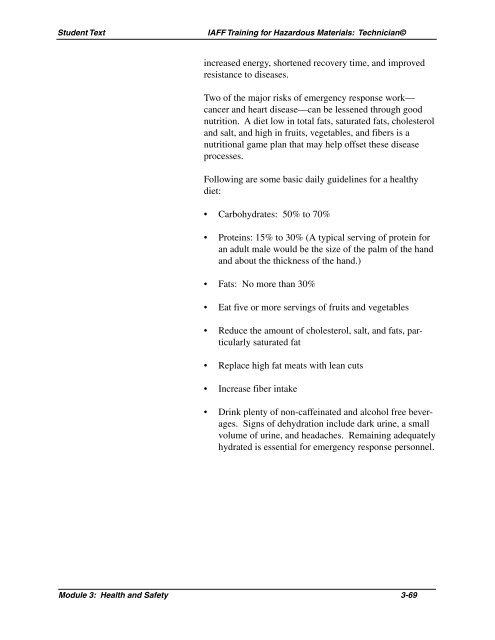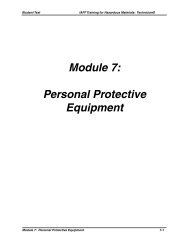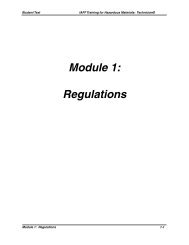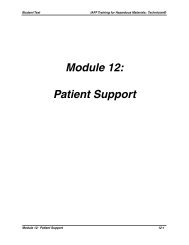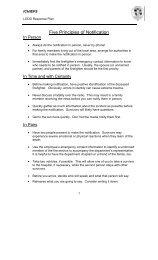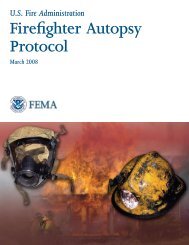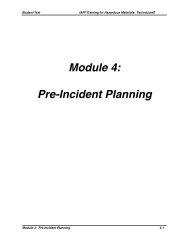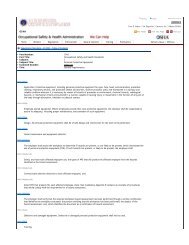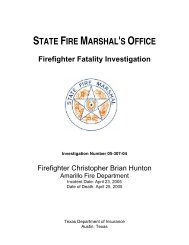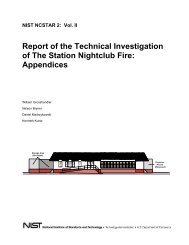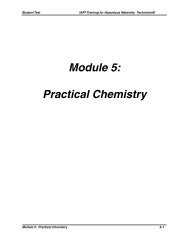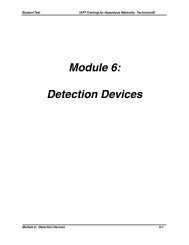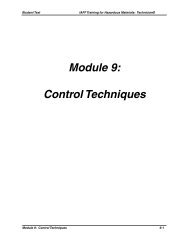Module 3: Health and Safety - IAFF
Module 3: Health and Safety - IAFF
Module 3: Health and Safety - IAFF
You also want an ePaper? Increase the reach of your titles
YUMPU automatically turns print PDFs into web optimized ePapers that Google loves.
Student Text <strong>IAFF</strong> Training for Hazardous Materials: Technician©<br />
increased energy, shortened recovery time, <strong>and</strong> improved<br />
resistance to diseases.<br />
Two of the major risks of emergency response work—<br />
cancer <strong>and</strong> heart disease—can be lessened through good<br />
nutrition. A diet low in total fats, saturated fats, cholesterol<br />
<strong>and</strong> salt, <strong>and</strong> high in fruits, vegetables, <strong>and</strong> fibers is a<br />
nutritional game plan that may help offset these disease<br />
processes.<br />
Following are some basic daily guidelines for a healthy<br />
diet:<br />
• Carbohydrates: 50% to 70%<br />
• Proteins: 15% to 30% (A typical serving of protein for<br />
an adult male would be the size of the palm of the h<strong>and</strong><br />
<strong>and</strong> about the thickness of the h<strong>and</strong>.)<br />
• Fats: No more than 30%<br />
• Eat five or more servings of fruits <strong>and</strong> vegetables<br />
• Reduce the amount of cholesterol, salt, <strong>and</strong> fats, particularly<br />
saturated fat<br />
• Replace high fat meats with lean cuts<br />
• Increase fiber intake<br />
• Drink plenty of non-caffeinated <strong>and</strong> alcohol free beverages.<br />
Signs of dehydration include dark urine, a small<br />
volume of urine, <strong>and</strong> headaches. Remaining adequately<br />
hydrated is essential for emergency response personnel.<br />
<strong>Module</strong> 3: <strong>Health</strong> <strong>and</strong> <strong>Safety</strong> 3-69


